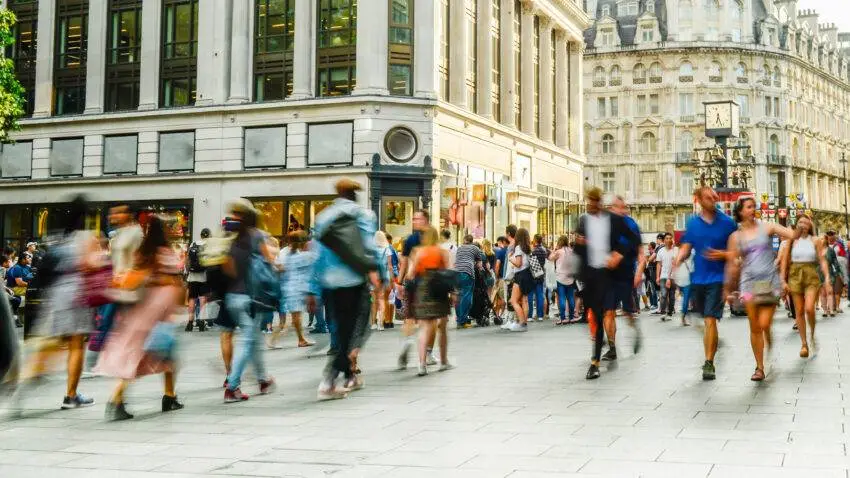This July, the United Kingdom experienced a modest rise in retail sales, driven by an upturn in summer clothing and beauty products purchases.
Despite this positive trend, the cost of living crisis continues to impact consumer spending on larger, non-essential items.
Increase in Retail Sales Driven by Warm Weather
Data from the British Retail Consortium (BRC) highlighted a 0.5% year-on-year increase in total UK retail sales for July. This improvement marked a recovery from June, where cooler weather deterred consumers from shopping. The arrival of warm weather encouraged consumers to purchase summer clothing and health and beauty products, preparing for seasonal activities such as outings and holidays.
Despite this, spending on furniture and household appliances declined as consumers prioritised essential items over big-ticket purchases. This trend underscores the ongoing financial challenges many households face.
Impact of Financial Constraints on Spending
The Bank of England’s recent interest rate cut, the first since the COVID-19 pandemic, aimed to support the economy after inflation sharply dropped to the 2% target in May and June. However, inflation remains significantly higher than it was four years ago.
Linda Ellett, KPMG’s UK head of consumer, retail, and leisure, stated, “Spending levels continue to be governed by whether households have been able to absorb the likes of mortgage and rent increases, or had to limit their spend elsewhere as a consequence.”
Selective Consumer Spending Amid Higher Living Costs
Additional data from Barclays revealed a 0.3% decline in overall consumer card spending for July, reflecting selective discretionary spending.
Barclays, which processes nearly 40% of UK credit and debit card transactions, noted increased spending on health and beauty products due to warmer weather and delayed summer sales. This contributed to a modest retail recovery.
However, non-essential spending fell by 1.1%, with reductions observed in clothing, home improvements, and sports equipment purchases.
Surge in Pub and Bar Expenditure
Interestingly, pubs and bars experienced a surge in spending as football fans gathered to watch England’s progress in the men’s Euro 2024 tournament. Payments in pubs and bars almost tripled on 14 July, marking a 195.6% increase year-on-year.
This made 14 July the busiest Sunday for pubs in 2024, with transaction volumes up 92.9% compared to the average Sunday.
Resilience in the UK Service Sector
In the service sector, the S&P Global UK services purchasing managers index (PMI) indicated a rise in demand for services in July at the fastest pace since May 2023. This survey, excluding retail, is closely monitored by the Bank of England and the Treasury as an early economic indicator.
The PMI rose to 52.5 in July from 52.1 in June, with any reading above 50.0 signifying growth in private sector activity. Joe Hayes, principal economist at S&P Global Market Intelligence, remarked, “With the general election period coming to an end at the start of July, survey data for last month showed the UK service sector enjoyed a modest rebound after a fairly subdued end to the second quarter.”
Hayes added, “July’s accelerated expansion in sales activity suggests an improvement in business and consumer confidence, and the latest survey results bode well for reasonable GDP growth in the third quarter.”
Retail Sales Growth Less Than Expected
Despite the overall increase in retail sales, the upturn is likely much less than retailers anticipated for this crucial time of the year.
Ellett further commented that summer staples, such as health, beauty, and gardening products, helped drive retail sales growth both online and in-store in July.
Long-term Economic Outlook
The long-term economic outlook remains uncertain as households continue to face financial pressures. The cost of living crisis has led many consumers to be more cautious with their spending, particularly on non-essential items.
This cautious approach to spending is likely to persist as inflation, although lowered, remains a significant concern compared to previous years.
In conclusion, while warm weather provided a boost to UK retail sales in July, the overall economic outlook remains cautious.
Consumers continue to navigate financial constraints, prioritising essentials over larger, discretionary purchases.

